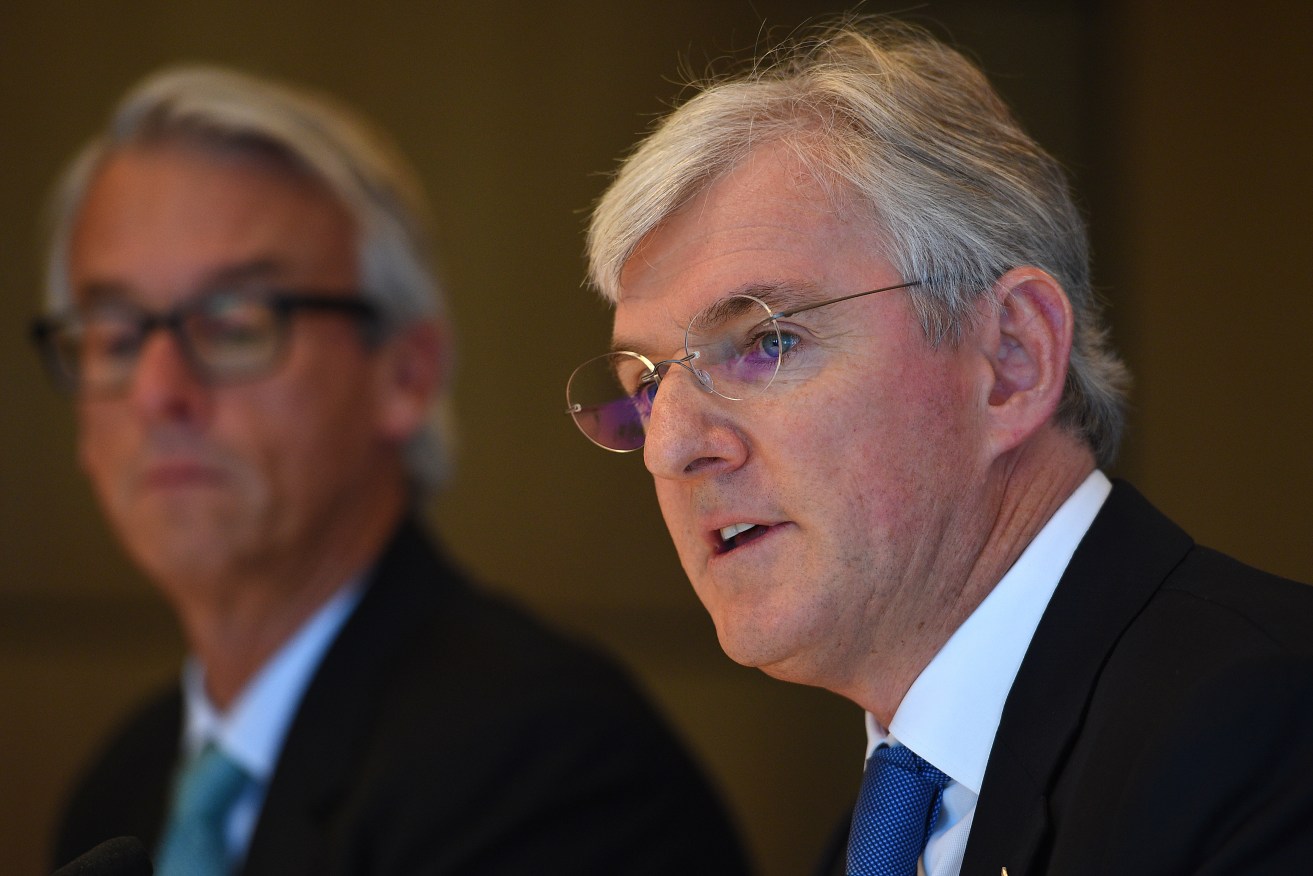A-League clubs throw ‘conflict of interest’ claims into FFA standoff
A-League clubs have lobbed a grenade on the morning of a crucial meeting that will shape the future of Australian soccer, detailing a list of 13 potential conflicts of interest involving Football Federation Australia board members.

FFA chair Steven Lowy, flanked by CEO David Gallop. AAP Photo
The Australian Professional Football Clubs Association (AFPCA), the lobby group formed by the 10 clubs, wrote to FFA chairman Steven Lowy this morning to outline their concerns about the independence of his board.
It comes ahead of FFA’s annual general meeting this afternoon in Sydney, where it’s expected Lowy’s latest proposal for a new FFA Congress structure will be voted down – putting the sport at risk of possible FIFA intervention.
The letter, dated November 30, is another clear attempt by the clubs to persuade FIFA to opt for the ‘nuclear option’ of dumping the current FFA board and installing a normalisation committee to run the sport on a temporary basis.
AFPCA chairman Greg Griffin said the letter was in response to previous correspondence from Lowy to FIFA member associations chief Joyce Cook back in July, which challenged the clubs to either stop making conflict of interest allegations or provide evidence.
“In line with your request that we provide particularised details of our concerns, please find enclosed an initial document for your review,” Griffin wrote to Lowy.
“The document has been produced using open source publicly available information and all sources have been referenced throughout.
“I look forward to your response in order that we might then determine subsequent actions.”
The document was also sent to FFA staff members, directors, state federation officials, representatives from FIFA and AFC, the A-League clubs and Professional Footballers Australia.
It provides an overview of previous affiliations between FFA board members or their companies with the Westfield Group or the Lowy family, with a source or reference attributed to every claim.
FFA executives are privately resigned to losing today’s vote on the make-up of Australian soccer’s top power structure.
The battle for control of the sport in Australia won’t end with the annual meeting in Sydney, which will vote on a new structure for the FFA Congress.
Political manoeuvring between FIFA and FFA, A-League clubs and other stakeholders will continue in the absence of agreement on a new model.
The current congress, which gives one vote to each of the nine state federations and one to A-League clubs as a whole, is seen by all parties as unrepresentative.
Not least FIFA, which has threatened to intervene and even temporarily run Australian soccer if a new deal isn’t reached.
The problem arrives with Lowy’s attempts to create a new congress structure.
The chairman, who followed his father Frank into the role, stands accused of failing to share power with clubs and players.
And at this point, his detractors have the numbers.
State chiefs in Victoria and NSW and the clubs’ representative are set to vote down Lowy’s latest proposal, which would take reform beyond a FIFA-imposed deadline.
And so what happens then?
Australia is likely to come before a FIFA committee in early December, which could issue anything from a please-explain to the nuclear option of “normalisation”.
Normalisation would in effect be a deregistration of FFA by the world body, triggering a power scramble in Australia that could include legal action from Lowy and co.
Outcomes including the expulsion of Australia from the World Cup, or Women’s World Cup 2023 bidding, remain live but unlikely.
And frustratingly for Lowy and chief executive David Gallop, the meeting comes between yesterday’s Asian Awards night in Bangkok – which they attended – and the World Cup draw in Moscow early on Saturday morning (Australian time), which they will miss.
It’s a neat metaphor for the many issues – A-League and W-League growth and expansion, and the grassroots game included – that have been sidelined by head office while power games play out.
-AAP




